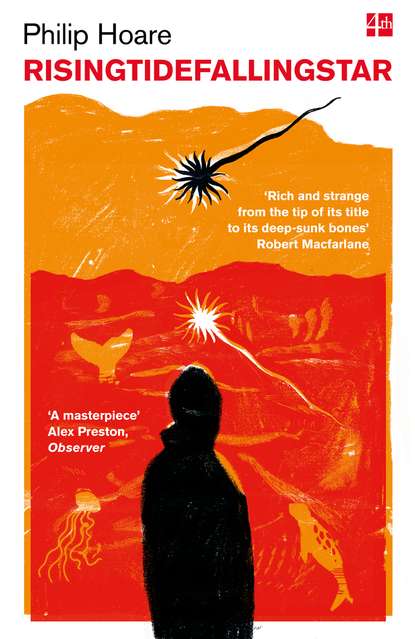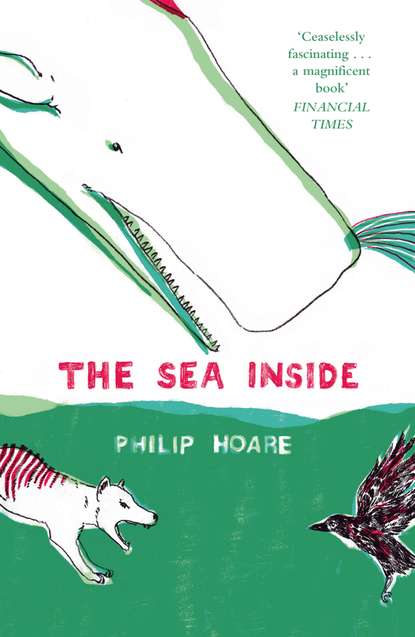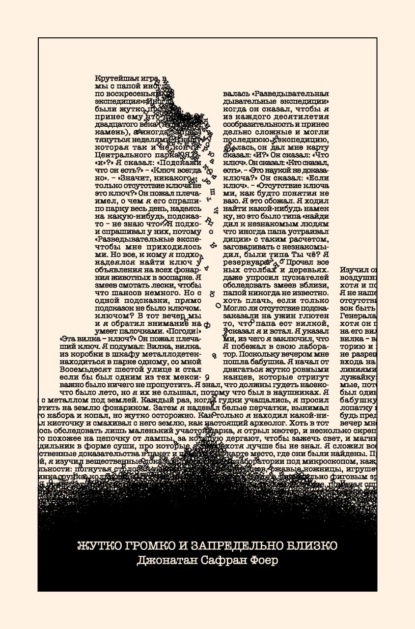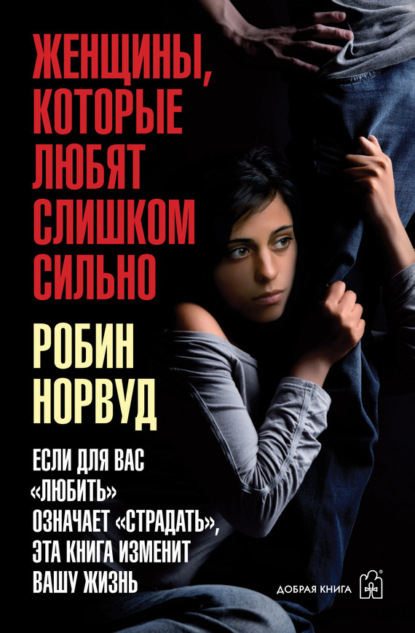
Текст
отзывы: 0 | рейтинг: 0
RISINGTIDEFALLINGSTAR
Жанр:
Язык:
Английский
Тип:
Текст
Год издания:
2019
Полная версия
Полная версия
RISINGTIDEFALLINGSTAR
Philip Hoare
Rich and strange from the tip of its title to its deep-sunk bones’ Robert MacfarlaneFrom the author of Leviathan, or, The Whale, comes a composite portrait of the subtle, beautiful, inspired and demented ways in which we have come to terms with our watery planet.In the third of his watery books, the author goes in pursuit of human and animal stories of the sea. Of people enchanted or driven to despair by the water, accompanied by whales and birds and seals – familiar spirits swimming and flying with the author on his meandering odyssey from suburbia into the unknown.Along the way, he encounters drowned poets and eccentric artists, modernist writers and era-defining performers, wild utopians and national heroes – famous or infamous, they are all surprisingly, and sometimes fatally, linked to the sea.Out of the storm-clouds of the twenty-first century and our restive time, these stories reach back into the past and forward into the future. This is a shape-shifting world that has never been certain, caught between the natural and unnatural, where the state between human and animal is blurred. Time, space, gender and species become as fluid as the sea.Here humans challenge their landbound lives through art or words or performance or myth, through the animal and the elemental. And here they are forever drawn back to the water, forever lost and found on the infinite sea.
Copyright (#ulink_1a288a70-c9e9-5e0b-a0f8-5a9c68b79ec3)
First published in Great Britain in 2017 by
Fourth Estate
An imprint of HarperCollinsPublishers
1 London Bridge Street
London SE1 9GF
www.4thestate.co.uk (http://www.4thestate.co.uk)
Copyright © Philip Hoare 2017
Cover design and illustration by Joe Lyward
Philip Hoare asserts the moral right to be identified as the author of the work.
A catalogue record for this book is available from the British Library
All rights reserved under International and Pan-American Copyright Conventions. By payment of the required fees, you have been granted the non-exclusive, non-transferable right to access and read the text of this e-book on screen. No part of this text may be reproduced, transmitted, down-loaded, decompiled, reverse engineered, or stored in or introduced into any information storage and retrieval system, in any form or by any means, whether electronic or mechanical, now known or hereinafter invented, without the express written permission of HarperCollins.
Source ISBN: 9780008133702
Ebook Edition © 2017 ISBN: 9780008133696
Version: 2018-05-24
Dedication (#ulink_7d147d42-3f14-534f-9aa6-fe20d33d00ea)
For Pat
Contents
Cover (#u62e2b5ed-c724-59af-8bc7-614a64103207)
Title Page (#u0c7fd737-afc5-50ad-a541-250249825c33)
Copyright (#u03cddaca-20d7-538a-b720-148e72e48cdb)
Dedication (#u016e07bb-7c43-5ff5-b328-1378437111f7)
Epigraph (#u0055fb2c-b2e5-55cb-b120-425d4027a73a)
THERISINGSEA (#ueab5fd1b-edcd-58f4-b468-c29219c679be)
HEGAZESTOTHESHORE (#u7fe9322e-7cab-5bc7-9f21-15594ced284e)
THESTARLIKESORROWSOFIMMORTALEYES (#u408c3815-7df4-515f-9116-53b4acef1ddf)
SOMETHINGAMAZING (#litres_trial_promo)
THEPEOPLEOFTHESEA (#litres_trial_promo)
ZEROANDEVERYTHINGTOGETHER (#litres_trial_promo)
UNDERAGREENSEA (#litres_trial_promo)
THEHANDSOMESAILOR (#litres_trial_promo)
STELLAMARIS (#litres_trial_promo)
THESEATHATRAGEDNOMORE (#litres_trial_promo)
Also by Philip Hoare (#litres_trial_promo)
About the Publisher (#litres_trial_promo)
Chapter initial illustrations by Joe Lyward
Epigraph (#ulink_8e920d6a-8701-52ca-ae96-76c8fb7d913e)
‘The sea, everywhere the sea, and no one looking at it’
DANY LAFERRIÈRE
THERISINGSEA (#ulink_7fc9ade2-7975-5bd7-a0f5-f8c9641ac0e2)
Not long ago but long enough, I looked into the old cupboard in my bedroom and at the back, among the piles of floppy discs and peeling spines of my children’s encyclopaedias, I found a notebook. It was in an old-fashioned imperial format, half-bound with blue cloth and shiny paper, its fore-edge delicately spattered like a blackbird’s egg. It came from the cable factory where my father had worked all his life. Inside, on feint-lined pages intended for notes on amps and electrical resistance, were writings and drawings I’d done when I was about fifteen years old.
On each left-hand page was a picture, in bright poster paint: a futuristic city, art deco designs, lithe figures out of some space opera or Russian ballet; fantastical images I’d collected in my teenage head. Halfway through the book I’d painted something I’d really seen: a leaping killer whale, slick with clear nail varnish to mimic its black-and-white skin, as if it had jumped out of the sea, rather than a concrete pool in a suburban safari park.
On the right-hand pages I’d composed lyrics and prose, the things I couldn’t say out loud. Looking at this parade of longings forty years later, I realised that the fifteen-year-old me had mapped out his life along those pale blue lines. As if I’d already lived in reverse. Everything that came after had been entered in that blue notebook, balanced on my knees while I watched television in our front room, waiting for whatever might come next.
The wind howled at my window like a wild animal, a snarling beast demanding to be fed. The house held fast against horizontal rain that threatened to find every crack in the walls. The air was full of water, driven directly from the shore. Between the falling trees and the pounding waves, it seemed that the sea – for all that it was a mile away or more – was reaching out for me in the darkness. The newspapers and the television and the websites warned us not to walk near it, as if our mere approach might be dangerous, as if its tentacles might reach out and drag us in.
Growling and yowling, ranting and rocking, falling back to catch their breath before their next assault, the storms kept on coming, and there was nothing we could do. The world had become turbulent with its own temper, its air sweeping over oceans in a tropical fury. If we ever felt guilty, we felt it now.
At least the sea is visible in its rage; the wind is an unseen monster. You don’t hear the wind; you hear what it leaves behind. It is defined by what gets in its way – trees, buildings, waves. Perhaps that’s why it preys on our imagination so disturbingly. The spinning of the globe seemed to have become audible – the sound of a world out of kilter. For what sins were we being punished? What had we done wrong? In Caribbean hurricanes during the seventeenth century, Spanish priests would toss crucifixes into the waves or hold the Host up into the wind, for fear that their sinful flocks were responsible for God’s displeasure.
That winter, storm after storm raked southern England. Tearing and snapping, the wind never seemed to stop. As I lay in bed, I could feel its volume whipping and squalling around me, changing direction wilfully, a mad car out of control.
Then, just when it seemed it could not get any worse, a mighty gale, as near as we might get to a hurricane, ripped out of the cover of night and into the naked day. Unable to sleep, disturbed by the charged air, as if its ions were crackling in my brain, I cycled down to the shore and took shelter under the eaves of the yacht club, a wooden building which seemed about to whirl off into the wind. Behind me stood a medieval abbey, and a fort once visited by the Virgin Queen to survey her maritime kingdom, its Tudor ramparts now protected from the waves by a long sea wall.
I’ve known this shore all my life: from its ancient Seaweed Hut – a weird structure which might as well have been put up by Iron Age inhabitants – to the brutal towers of its nineteen-sixties housing estate. It is as familiar to me as it is to the birds that scrabble for their livelihoods in its shingle and mud. I’d taken it for granted, that it would always be there.
I couldn’t believe what I was seeing. The beach was being torn apart before my eyes. The wall, usually only lapped even at the highest spring tide, was entirely overwhelmed. Waves – to call them waves seems pathetically inadequate – had lost their laterality and gone vertical, rising higher than a house.
My world had lost its moorings. This was not some rocky Cornish or Scottish coast, buttressed against such a battering; this was a sedate, suburban shore, complacent and unprepared; a soft place on the southern edge of England, open to the rest of the world, successively invaded and settled for millennia. This estuary even had its own Roman deity, Ancasta. Clearly, she had been offended.
It was as though someone had computer-generated the weather and ramped it up to a ridiculous degree. An invisible alien, formed of roaring air and raging water, had been unleashed. The sea spray reached the tops of the trees on the shore. It was terrifying, and exhilarating. My heart raced to keep up with every rattling rolling rumble; a cacophony created by raked-up shingle and creaking trees, the Foley effects of enraged gods flinging nature around.
I watched it like some viral video; not rerun, but in real time. Behind this frontline, people were driving cars, taking buses, going to work, school, shops, locked in their own personal climate. We shared the same city; but they felt safe, seeing the storm through their screens. I was on the edge of it, physically confronted by the violence, as shocking as if I’d come across a fist fight on the street.
The sea wall had been replaced by a wall of sea. The placid site where I propped up my bike every morning, where I’d leave my clothes and slip into the water, joining rather than entering it, had become a deadly, repulsive place.
It was the only day during those storms that I did not, could not swim; perhaps the only day that year. Even at the height of the past days’ disruption I’d launched myself into the madness, defying the warnings. So what if anything went wrong? I didn’t take my mobile phone in case of emergency because I don’t have one. People say I should be careful; but why be careful, when we are so full of cares? This was the opposite of that. I glorified in my stupidity. Foolhardy, a hardy fool. I had rocked with the waves, holding my head above water like a shipwrecked dog, dodging planks and plastic buckets. A single trainer had floated past, then a motorbike helmet; I wondered if the head might still be in it. I was borne up by the rollercoaster ride, exultant and excited, although I had soon found myself spat back onshore.
Not that day. That day I had to admit defeat, and defer to a greater power.
During the night the wind woke me again, prowling around the house like a midnight demon, ready to suck me out of the window. The sound was beyond sound: one white noise comprised of many others, fit to eviscerate my dreams.
In the morning, not quite believing what had happened during the darkness – was that last night, or the night before; did I even imagine it? – I ventured out on the third day of the storm, expecting to see a newly devastated world.
Philip Hoare
Rich and strange from the tip of its title to its deep-sunk bones’ Robert MacfarlaneFrom the author of Leviathan, or, The Whale, comes a composite portrait of the subtle, beautiful, inspired and demented ways in which we have come to terms with our watery planet.In the third of his watery books, the author goes in pursuit of human and animal stories of the sea. Of people enchanted or driven to despair by the water, accompanied by whales and birds and seals – familiar spirits swimming and flying with the author on his meandering odyssey from suburbia into the unknown.Along the way, he encounters drowned poets and eccentric artists, modernist writers and era-defining performers, wild utopians and national heroes – famous or infamous, they are all surprisingly, and sometimes fatally, linked to the sea.Out of the storm-clouds of the twenty-first century and our restive time, these stories reach back into the past and forward into the future. This is a shape-shifting world that has never been certain, caught between the natural and unnatural, where the state between human and animal is blurred. Time, space, gender and species become as fluid as the sea.Here humans challenge their landbound lives through art or words or performance or myth, through the animal and the elemental. And here they are forever drawn back to the water, forever lost and found on the infinite sea.
Copyright (#ulink_1a288a70-c9e9-5e0b-a0f8-5a9c68b79ec3)
First published in Great Britain in 2017 by
Fourth Estate
An imprint of HarperCollinsPublishers
1 London Bridge Street
London SE1 9GF
www.4thestate.co.uk (http://www.4thestate.co.uk)
Copyright © Philip Hoare 2017
Cover design and illustration by Joe Lyward
Philip Hoare asserts the moral right to be identified as the author of the work.
A catalogue record for this book is available from the British Library
All rights reserved under International and Pan-American Copyright Conventions. By payment of the required fees, you have been granted the non-exclusive, non-transferable right to access and read the text of this e-book on screen. No part of this text may be reproduced, transmitted, down-loaded, decompiled, reverse engineered, or stored in or introduced into any information storage and retrieval system, in any form or by any means, whether electronic or mechanical, now known or hereinafter invented, without the express written permission of HarperCollins.
Source ISBN: 9780008133702
Ebook Edition © 2017 ISBN: 9780008133696
Version: 2018-05-24
Dedication (#ulink_7d147d42-3f14-534f-9aa6-fe20d33d00ea)
For Pat
Contents
Cover (#u62e2b5ed-c724-59af-8bc7-614a64103207)
Title Page (#u0c7fd737-afc5-50ad-a541-250249825c33)
Copyright (#u03cddaca-20d7-538a-b720-148e72e48cdb)
Dedication (#u016e07bb-7c43-5ff5-b328-1378437111f7)
Epigraph (#u0055fb2c-b2e5-55cb-b120-425d4027a73a)
THERISINGSEA (#ueab5fd1b-edcd-58f4-b468-c29219c679be)
HEGAZESTOTHESHORE (#u7fe9322e-7cab-5bc7-9f21-15594ced284e)
THESTARLIKESORROWSOFIMMORTALEYES (#u408c3815-7df4-515f-9116-53b4acef1ddf)
SOMETHINGAMAZING (#litres_trial_promo)
THEPEOPLEOFTHESEA (#litres_trial_promo)
ZEROANDEVERYTHINGTOGETHER (#litres_trial_promo)
UNDERAGREENSEA (#litres_trial_promo)
THEHANDSOMESAILOR (#litres_trial_promo)
STELLAMARIS (#litres_trial_promo)
THESEATHATRAGEDNOMORE (#litres_trial_promo)
Also by Philip Hoare (#litres_trial_promo)
About the Publisher (#litres_trial_promo)
Chapter initial illustrations by Joe Lyward
Epigraph (#ulink_8e920d6a-8701-52ca-ae96-76c8fb7d913e)
‘The sea, everywhere the sea, and no one looking at it’
DANY LAFERRIÈRE
THERISINGSEA (#ulink_7fc9ade2-7975-5bd7-a0f5-f8c9641ac0e2)
Not long ago but long enough, I looked into the old cupboard in my bedroom and at the back, among the piles of floppy discs and peeling spines of my children’s encyclopaedias, I found a notebook. It was in an old-fashioned imperial format, half-bound with blue cloth and shiny paper, its fore-edge delicately spattered like a blackbird’s egg. It came from the cable factory where my father had worked all his life. Inside, on feint-lined pages intended for notes on amps and electrical resistance, were writings and drawings I’d done when I was about fifteen years old.
On each left-hand page was a picture, in bright poster paint: a futuristic city, art deco designs, lithe figures out of some space opera or Russian ballet; fantastical images I’d collected in my teenage head. Halfway through the book I’d painted something I’d really seen: a leaping killer whale, slick with clear nail varnish to mimic its black-and-white skin, as if it had jumped out of the sea, rather than a concrete pool in a suburban safari park.
On the right-hand pages I’d composed lyrics and prose, the things I couldn’t say out loud. Looking at this parade of longings forty years later, I realised that the fifteen-year-old me had mapped out his life along those pale blue lines. As if I’d already lived in reverse. Everything that came after had been entered in that blue notebook, balanced on my knees while I watched television in our front room, waiting for whatever might come next.
The wind howled at my window like a wild animal, a snarling beast demanding to be fed. The house held fast against horizontal rain that threatened to find every crack in the walls. The air was full of water, driven directly from the shore. Between the falling trees and the pounding waves, it seemed that the sea – for all that it was a mile away or more – was reaching out for me in the darkness. The newspapers and the television and the websites warned us not to walk near it, as if our mere approach might be dangerous, as if its tentacles might reach out and drag us in.
Growling and yowling, ranting and rocking, falling back to catch their breath before their next assault, the storms kept on coming, and there was nothing we could do. The world had become turbulent with its own temper, its air sweeping over oceans in a tropical fury. If we ever felt guilty, we felt it now.
At least the sea is visible in its rage; the wind is an unseen monster. You don’t hear the wind; you hear what it leaves behind. It is defined by what gets in its way – trees, buildings, waves. Perhaps that’s why it preys on our imagination so disturbingly. The spinning of the globe seemed to have become audible – the sound of a world out of kilter. For what sins were we being punished? What had we done wrong? In Caribbean hurricanes during the seventeenth century, Spanish priests would toss crucifixes into the waves or hold the Host up into the wind, for fear that their sinful flocks were responsible for God’s displeasure.
That winter, storm after storm raked southern England. Tearing and snapping, the wind never seemed to stop. As I lay in bed, I could feel its volume whipping and squalling around me, changing direction wilfully, a mad car out of control.
Then, just when it seemed it could not get any worse, a mighty gale, as near as we might get to a hurricane, ripped out of the cover of night and into the naked day. Unable to sleep, disturbed by the charged air, as if its ions were crackling in my brain, I cycled down to the shore and took shelter under the eaves of the yacht club, a wooden building which seemed about to whirl off into the wind. Behind me stood a medieval abbey, and a fort once visited by the Virgin Queen to survey her maritime kingdom, its Tudor ramparts now protected from the waves by a long sea wall.
I’ve known this shore all my life: from its ancient Seaweed Hut – a weird structure which might as well have been put up by Iron Age inhabitants – to the brutal towers of its nineteen-sixties housing estate. It is as familiar to me as it is to the birds that scrabble for their livelihoods in its shingle and mud. I’d taken it for granted, that it would always be there.
I couldn’t believe what I was seeing. The beach was being torn apart before my eyes. The wall, usually only lapped even at the highest spring tide, was entirely overwhelmed. Waves – to call them waves seems pathetically inadequate – had lost their laterality and gone vertical, rising higher than a house.
My world had lost its moorings. This was not some rocky Cornish or Scottish coast, buttressed against such a battering; this was a sedate, suburban shore, complacent and unprepared; a soft place on the southern edge of England, open to the rest of the world, successively invaded and settled for millennia. This estuary even had its own Roman deity, Ancasta. Clearly, she had been offended.
It was as though someone had computer-generated the weather and ramped it up to a ridiculous degree. An invisible alien, formed of roaring air and raging water, had been unleashed. The sea spray reached the tops of the trees on the shore. It was terrifying, and exhilarating. My heart raced to keep up with every rattling rolling rumble; a cacophony created by raked-up shingle and creaking trees, the Foley effects of enraged gods flinging nature around.
I watched it like some viral video; not rerun, but in real time. Behind this frontline, people were driving cars, taking buses, going to work, school, shops, locked in their own personal climate. We shared the same city; but they felt safe, seeing the storm through their screens. I was on the edge of it, physically confronted by the violence, as shocking as if I’d come across a fist fight on the street.
The sea wall had been replaced by a wall of sea. The placid site where I propped up my bike every morning, where I’d leave my clothes and slip into the water, joining rather than entering it, had become a deadly, repulsive place.
It was the only day during those storms that I did not, could not swim; perhaps the only day that year. Even at the height of the past days’ disruption I’d launched myself into the madness, defying the warnings. So what if anything went wrong? I didn’t take my mobile phone in case of emergency because I don’t have one. People say I should be careful; but why be careful, when we are so full of cares? This was the opposite of that. I glorified in my stupidity. Foolhardy, a hardy fool. I had rocked with the waves, holding my head above water like a shipwrecked dog, dodging planks and plastic buckets. A single trainer had floated past, then a motorbike helmet; I wondered if the head might still be in it. I was borne up by the rollercoaster ride, exultant and excited, although I had soon found myself spat back onshore.
Not that day. That day I had to admit defeat, and defer to a greater power.
During the night the wind woke me again, prowling around the house like a midnight demon, ready to suck me out of the window. The sound was beyond sound: one white noise comprised of many others, fit to eviscerate my dreams.
In the morning, not quite believing what had happened during the darkness – was that last night, or the night before; did I even imagine it? – I ventured out on the third day of the storm, expecting to see a newly devastated world.
Другие книги автора:
Популярные книги


















